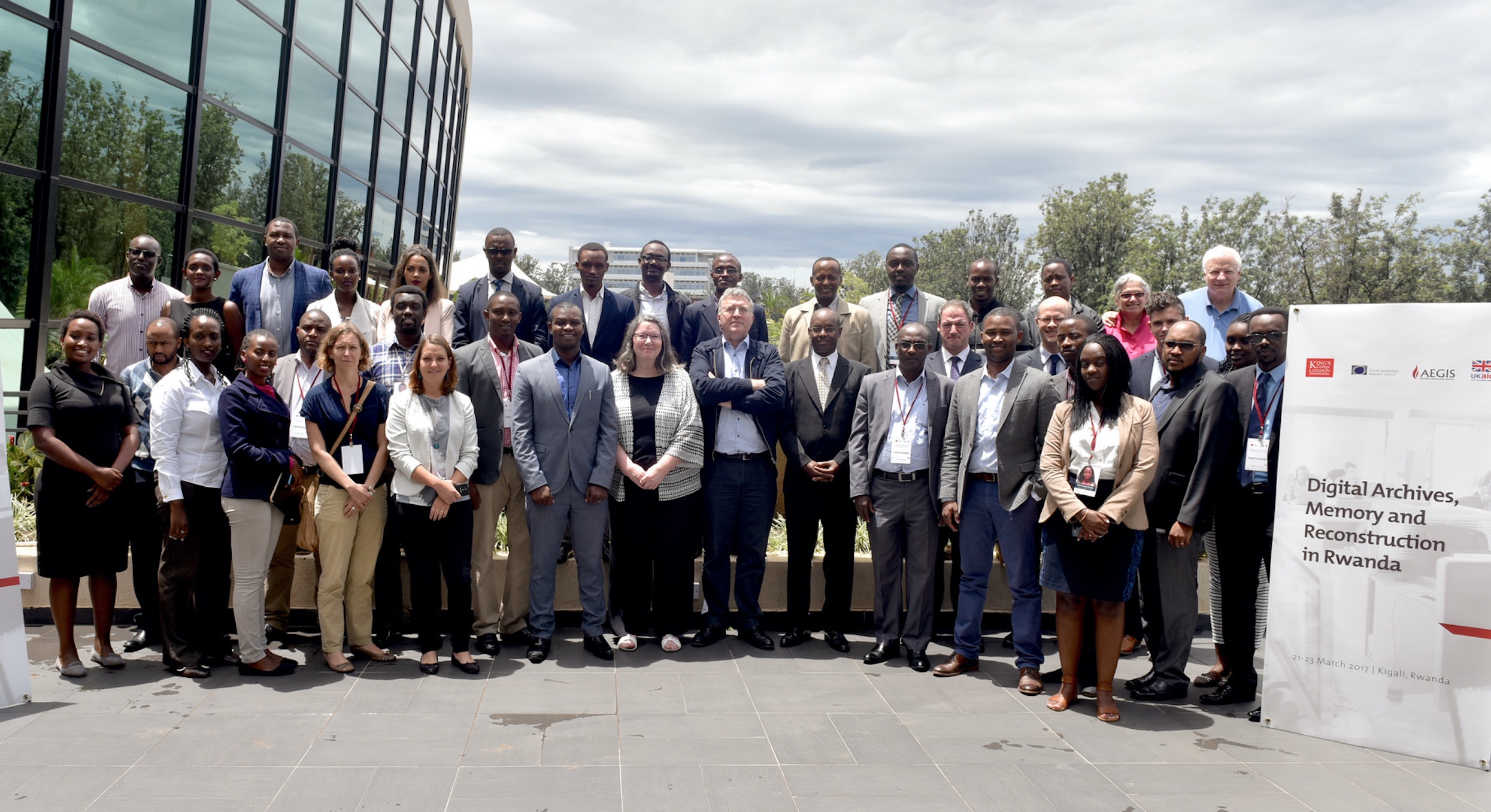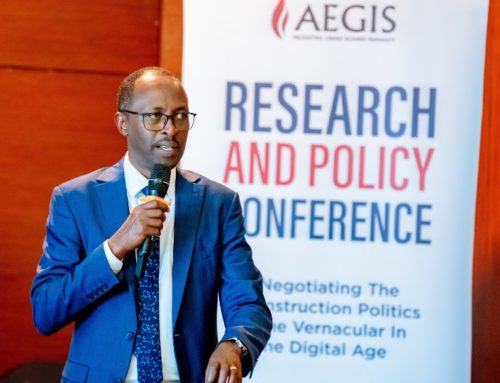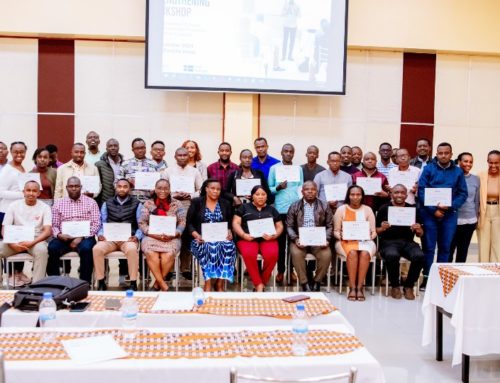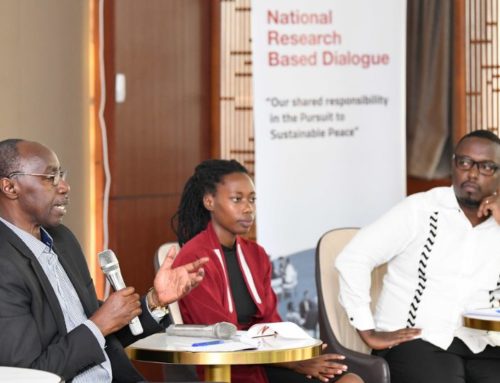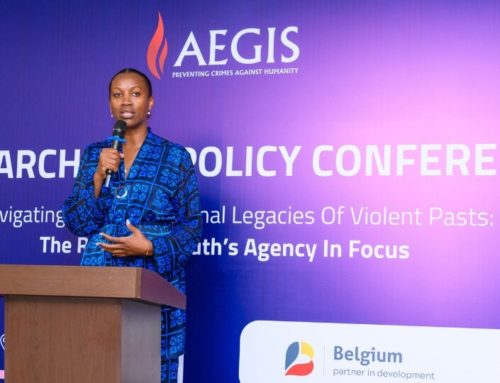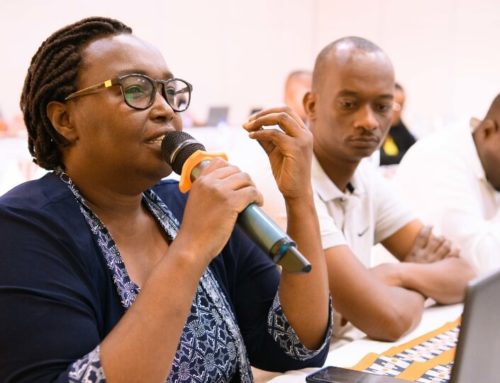The Aegis Trust and King’s College London (KCL) conference on Digital Archives, Memory and Reconstruction in Rwanda concluded with the development of a roadmap to improve the quality of archiving in Rwanda as well as access to existing and future digital archives.
Professor Sheila Anderson and Dr. Mark Hughes from KCL had the unenviable task of condensing the huge variety of matters discussed at the conference into a short summary. Both speakers celebrated the success of the gathering, and the usefulness of the proposed action plans.
“We need to carefully select what we archive today because that’s what our grandchildren will remember. We also need to work with young people to bridge the divide between digital natives and digital migrants and find the balance between rapid development of new technologies and impact,” Sheila Anderson said.
Quick Wins for Digital Archiving
The participants identified various ‘Quick Wins’ – short-term actions that will help to solve challenges highlighted during discussions. In terms of identifying content for archives, it was recommended that a recent study on Rwanda’s archive holdings be made public and that an extended collection inventory be created and shared among institutions.
It was also agreed that institutions needed to be more cohesive, and that a survey to identify the potential for sharing expertise, equipment and networks would help to address the problem of fragmented activities. The participants also noted that it was important to identify relevant legal frameworks with regards to the ownership, access and use of sensitive material and to raise awareness of these policies and laws.
This roadmap and the proposed projects will be the topic of discussion at a follow-up conference in London in September, followed by a final comprehensive report to shape future policy on archiving in Rwanda.
Summing up the quick wins, Dr Mark Hedges said: “We need to share expertise, share infrastructure, share skills and share knowledge. We need to work together. We would like to establish more peer-to-peer networks to support mutual learning and skills development. Trainings on digital archiving should be very practical and include apprenticeships and short courses.”
Partnership & Collaboration
The conference was rounded off by Freddy Mutanguha, who stressed the importance of archive building and its significance to Rwanda, encouraging participating institutions to build upon the suggestions of the conference, and to collaborate to make such resources as useful as possible for future generations.
Finally, Mark Montgomery, Head of Governance for the UK’s Department For International Development in Rwanda (DFID), praised the initiative and importance of the conference, as well as the strong link between British and Rwandan institutions, reiterating calls for cooperation and action, and closing the conference formally.
“It is important for us to find ways to protect Rwanda’s archives, streamline access and improve how they can be used for research and learning. To do so, we need to increase collaboration between research institutions, technology providers and the holders of archives, both locally and internationally. DFID is proud to be associated with efforts to digitise important historical documents through the Genocide Archive of Rwanda and by funding a study on the extent of archives across the country,” Mr Montgomery said.
The conference on Digital Archives, Memory and Reconstruction in Rwanda was made possible thanks to support from the UK Arts and Humanities Research Council.

